The celebration of Hispanic Heritage Month would not be complete without a nod to this group of very important Hispanic artists, athletes, politicians, activists and professionals. Their efforts over the years have helped raise the consciousness of a nation and the world about the contributions of Hispanics and the challenges Hispanics have faced as they are woven into the American tapestry of tradition and values. They are truly Hispanics you want to know.
The celebration of Hispanic Heritage Month would not be complete without a nod to this group of very important Hispanic artists, athletes, politicians, activists and professionals. Their efforts over the years have helped raise the consciousness of a nation and the world about the contributions of Hispanics and the challenges Hispanics have faced as they are woven into the American tapestry of tradition and values. They are truly Hispanics you want to know.
Arts & Entertainment
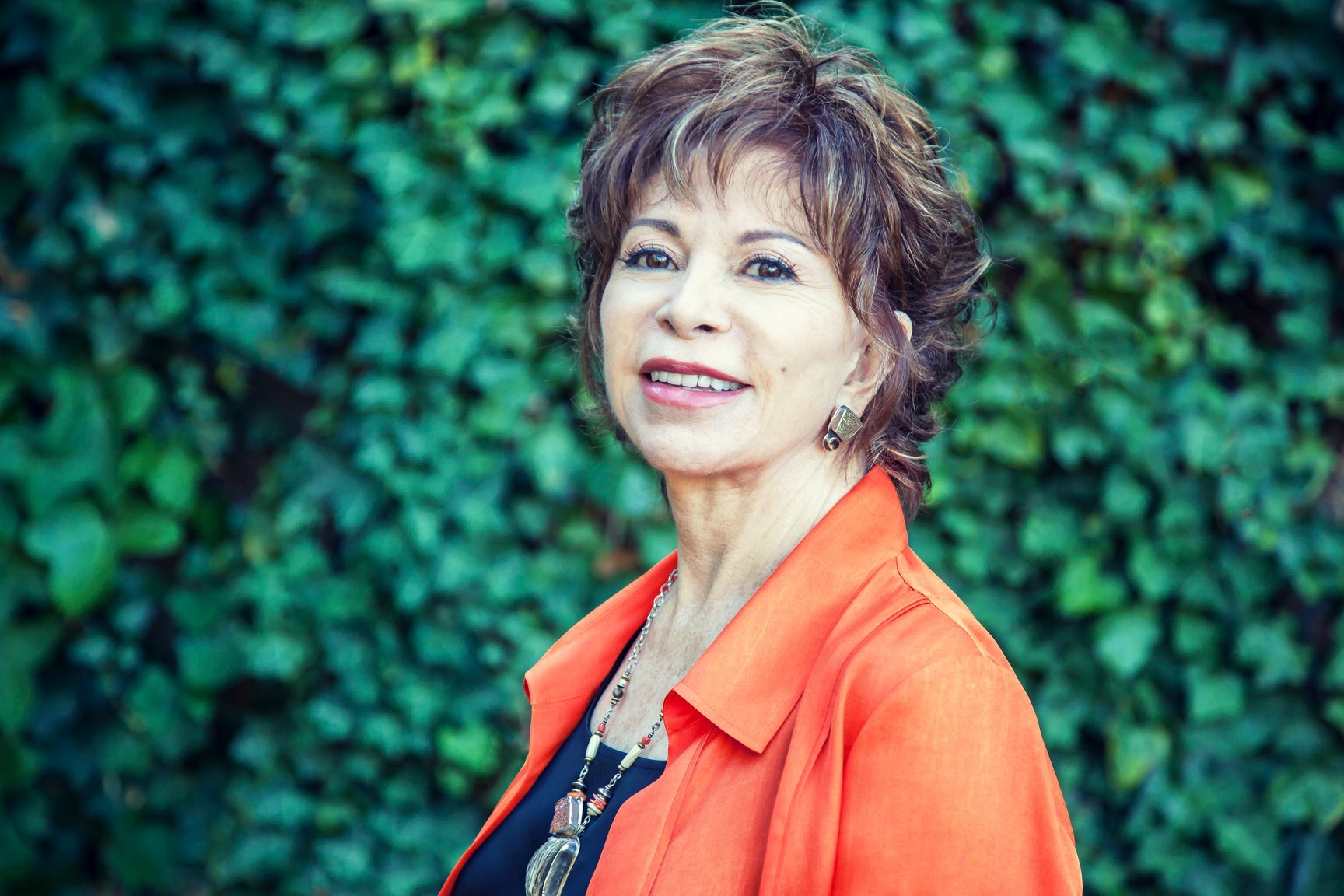
Isabel Allende
Born: August 2, 1942 Lima, Peru
Isabel Allende was born in Lima, Peru, in 1942 and grew up to become a prolific, world-renowned and influential writer. Her more than a dozen books, including novels, stories for young people, short fiction and a memoir, are read all over the globe and have been translated into more than 27 languages. Two of her books, “The House of the Spirits” and “Of Love and Shadows,” have been adapted for the silver screen.
Although she wrote in Spanish, many of her stories use locations in the United States as their settings. Her 1999 novel “Daughter of Fortune” was a New York Times bestseller and an Oprah's Book Club selection. Its setting was the gold rush of 1849 in San Francisco. “Portrait of Sepia” was published in 2000 as a follow up to “Daughter of Fortune.” Both novels present a vivid picture of the prominence of South Americans in the United States during that period in American history.
One of her works that offers great insight into her life in Chile and migration to the United States is “My Invented Country,” published in 2003 and written after the bombing of the World Trade Center on Sept. 11, 2001. On the personal side, Allende's father was the first cousin of Salvador Allende who became president of Chile in 1970. Allende and her family lived in Santiago, Chile, from 1958 to 1975, two years after President Allende was overthrown by a military coup. In 2014, Isabel received both an honorary doctorate from Harvard and the Presidential Medal of Freedom from the White House.

Marc Anthony
Born: September 16, 1968 New York, USA
Popular singer, songwriter and actor Marc Anthony was born in Spanish Harlem, N.Y., in 1968. His parents were from Puerto Rico. He has sold more than 11 million albums worldwide, making him one of the most influential artists of his time and a true ambassador of Latin music and culture. His salsa style, influenced by African-American and rhythm and blues genres, made him a successful crossover performer. Anthony was included on the Top 10 List of influential New Yorkers compiled by New York magazine. As an actor, he appeared in Martin Scorsese’s “Bringing Out the Dead” (1999); and with Denzel Washington and Christopher Waken in director Tony Scott’s “Man On Fire” (2004). He also appeared in the 1997 Paul Simon musical “The Capeman.” Anthony starred as the Puerto Rican salsa pioneer Héctor Lavoe, with Jennifer López as Puchi, in the biopic, “El Cantante,” directed by Leon Ichaso.
He was recognized with a Lifetime Achievement Award by the Congressional Hispanic Caucus Institute in Washington, D.C., in September 2009. May 2010, marked the release of his production entitled “Iconos” (Icons), an all-ballad Spanish album, including eight tides of his favorite balladeers and two original songs by Anthony and Julio Reyes. In 2015 Marc announced the formation of Magnus Media, LLC. Based in Miami, Magnus Media is a diversified entertainment company focused on developing new ventures that bridge content creation and commerce.
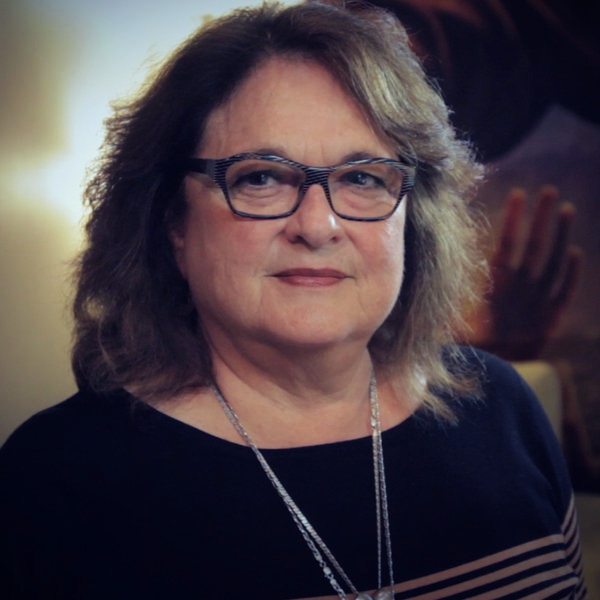
Judy Baca
Born: September 20, 1946 California, USA
Judy Baca, born in Huntington Park, Calif., in 1946, grew up in a Spanish-speaking home and turned to art when her lack of English-speaking skills made the transition to public schools difficult. Art became her passport to education. She studied art at CaI State Northridge and with the advice of her grandmother, determined that her art career would have social meaning and purpose. She has made her mark as a painter and muralist, community arts pioneer, scholar and educator and has been teaching art in the University of California (UC) System (including at UCLA) for more than 20 years.
Her establishment of the first City of Los Angeles Mural Program in 1974 was the groundwork for another community arts organization, the Social and Public Art Resource Center (SPARC). Throughout Los Angeles and beyond, SPARC’S projects have often been created in depressed neighborhoods. These murals bring much-needed public attention to these neighborhoods and their special needs. Her work, The Great Wall of Los Angeles, runs along a flood control channel in the San Fernando Valley. It is currently the world’s longest mural, at 2,700 feet. The Great Wall depicts a multicultural panorama of California from prehistory through the 1950s.
Baca has received many awards and honors throughout her more than 30 years as an artist and social activist. They include the InnerCity Struggle Elizabeth “Betita” Martinez Activist Scholar Award, the Through the Flower Award for contributions to the feminist art movement, Corky Gonzalez’s Escuela Tlatelolco Centro de Estudios & Champions of Change Award, Denver and Sen-ator Jenny Oropeza Artist of Distinction Award. This year, Judy was presented the 2015 Cal State University, Northridge Distinguished Alumni Award by CSUN President Dianne Harrison.
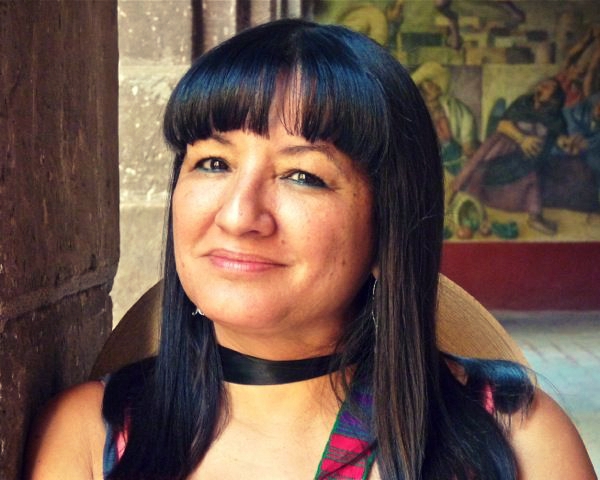
Sandra Cisneros
Born: December 20, 1954 Chicago, USA
Poet, novelist and short-story writer Sandra Cisneros was born in Chicago in 1954 but spent some of her childhood years shuttling back and forth between there and Mexico City. When she was 11, her Mexican father and Chicana mother moved Sandra and her six brothers and sisters to a home in a poverty-stricken neighborhood of Chicago. Cisneros says that as an escape from the frequent traveling and poverty conditions, she developed a love of reading. This love for reading led her to develop her own writing skills in high school, becoming editor of the school’s literary magazine.
After attending Loyola University, Cisneros went on to receive a Master of Fine Arts degree at the Iowa Writers’ Workshop, University of Iowa, Iowa City, in 1978. In her graduate work, Cisneros found her literary style and passion. Her collection of insights about the lives of Latinas, “The House on Mango Street,” was an instant classic, winning the Before Columbus Book Award. Throughout her writing career, she has amassed numerous literary honors, including the Lannan Literary Award and the American Book Award and fellowships from the National Endowment for the Arts and the MacArthur Foundation.
Along with her works of fiction, Cisneros has been lauded for her poetry collections, including “My Wicked, Wicked Ways” and “Bad Boys.” In 1991, Random House published Cisneros’ first collection of short stories, “Woman Hollering Creek,” set in the border region separating the United States from México. To date, Sandra’s first novel, “The House on Mango Street,” which came out in 1984, has sold more than 2 million copies.

John Leguizamo
Born: July 22, 1964 Bogotá, Colombia
Actor and comedian John Leguizamo was born in 1964, in Bogotá, Colombia, but grew up in Jackson Heights, in Queens, N. Y. His parents divorced when he was 14, but their life together gave Leguizamo much material to use in his comedy act and one-man shows. Coming from a broken home, he acted out and was arrested twice, once for hopping a subway turnstile and another time for skipping school. He also got into trouble for taking over a subway public address system, so he could entertain riders with a comedy show.
Once he discovered a love of performing, he worked at a Kentucky Fried Chicken to pay for acting classes. He spent much of the 1980s performing in comedy clubs. In 1989, he made his film debut in Brian De Palma’s Vietnam drama, “Casualties of War.” He also appeared in the films “Die Hard II” and “Regarding Henry.” However, he began to perform in live one-man shows on stage when he became disillusioned with the roles he was being offered. He was usually cast as a drug dealer or heavy. He decided to use his act to expose and ridicule Latino stereotypes. His tactic seems to have been effective.
Leguizamo’s on-stage success and exposure has led to TV and movie roles. He performed in the animated hit film “Ice Age” and played a doctor on “E.R.” In 2015, The Tribeca Film Festival announced that one of the films selected to be featured at their festival will be “Meadowland,” John’s latest film, which stars Olivia Wilde and Luke Wilson.
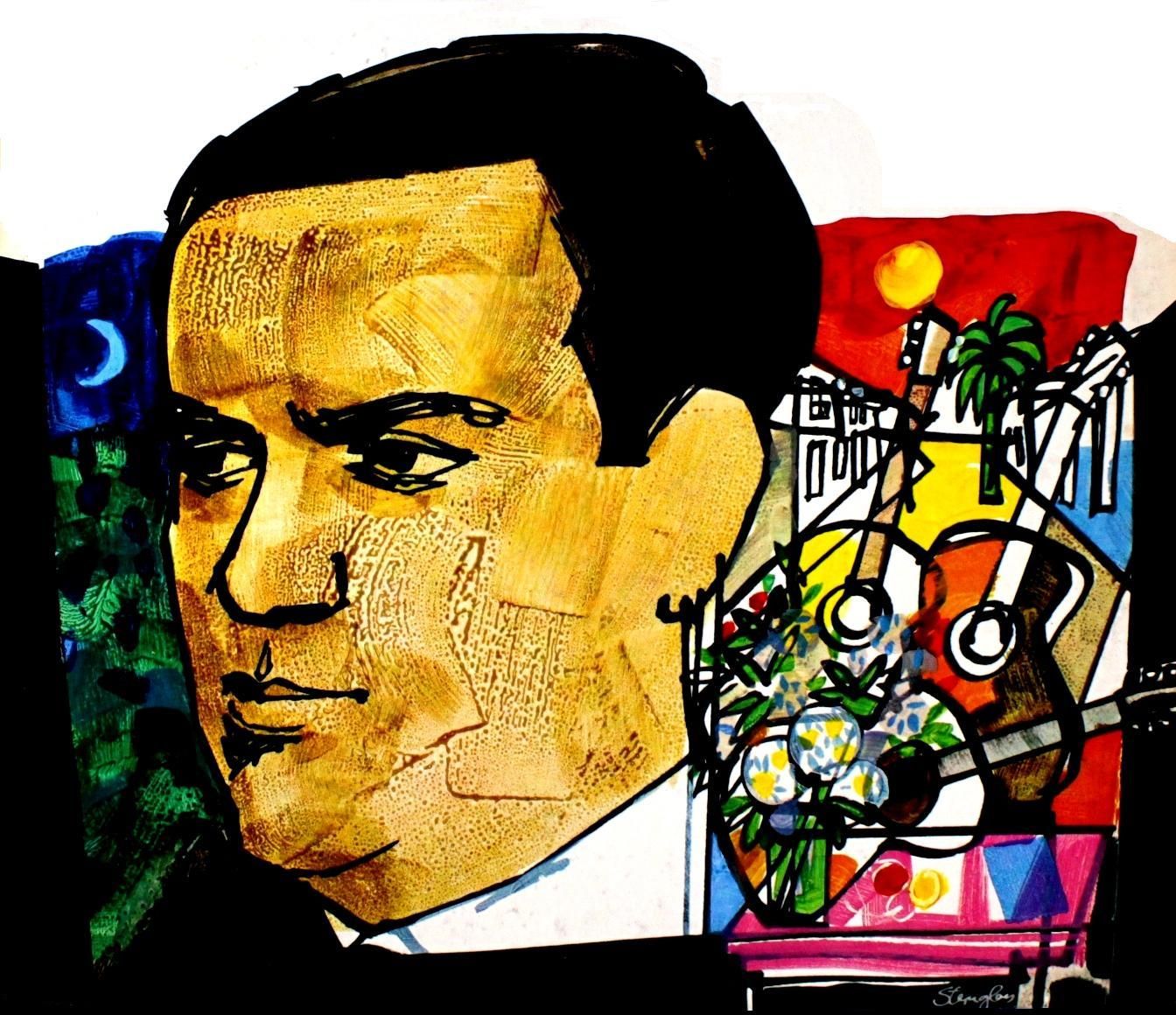
Ernesto Lecuona
Born: August 6, 1895 Guanabacoa, Cuba
Died: November 29, 1963 Santa Cruz de Tenerife, Spain
Ernesto Lecuona, a composer and pianist, was born in 1895 in Guanabacoa, Cuba. One of seven children, he was a child prodigy, giving piano recitals by the time he was 5 years old. At age 12, he published his first composition, Cuba y America. In 1913, he received a degree with honors from the Conservatorio Nacional de la Habana and was awarded a gold medal in performance.
Lecuona’s musical style was a fusion of the three major cultural influences of his life. His Spanish influence is seen in his work Malagueña, which became a popular jazz, marching band and drum corps composition. His Cuban style is demonstrated in his waltzes and in such melodies as Siboney and Siempre en Mi Corazón. The influence of Africa can be found in his Afro-Cuban rhythms such as Danza Cubana.
Lecuona is considered the father of the Cuban lyric theater. His music has been featured in more movies than that of any other Latino artist. He has performed at New York’s Carnegie Hall and throughout Europe and Latin America. He founded both the Havana Symphony Orchestra and the Lecuona Cuban Boys orchestra.
In 1963, Lecuona traveled to Santa Cruz de Tenerife in the Canary Island to visit the grave of his father, and he died there of heart failure and lung problems on Nov. 29, 1963. But he was not returned to his native Cuba for burial. Lecuona had stipulated that he be buried at the Gate of Heaven Cemetery in New York and remain there until Cuba was free of communism or communist influences.
Labor Leaders
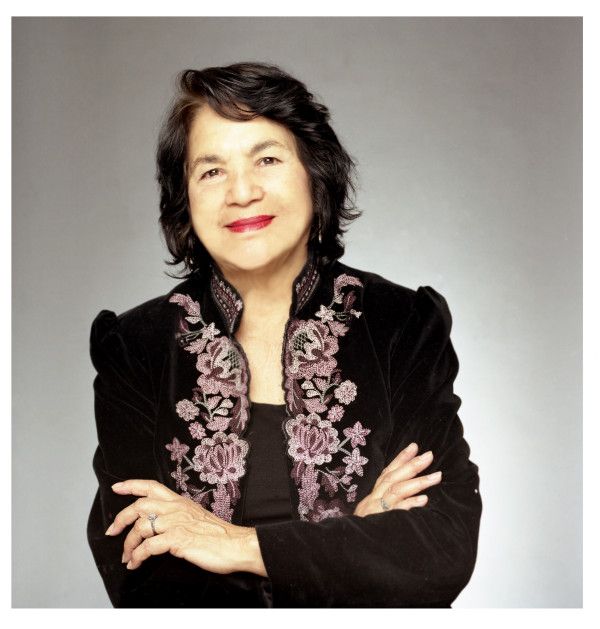
Dolores Huerta
Born: April 10, 1930 New Mexico, USA
Mexican-American Dolores C. Huerta was born in 1930 and is the cofounder and first vice president emeritus of the United Farm Workers of America, AFL-CIO (UFW), and a member of the Democratic Socialists of America. In 1955, Huerta co-founded the Stockton chapter of the Community Service Organization, and in I960 co-founded the Agricultural Workers Association. In 1962, she co-founded the National Farm Workers Association with César Chávez, which would later become the Agricultural Workers Organizing Committee. In 1966, she negotiated a contract between farmworkers and the Schenley Wine Com-pany, which was the first agreement that allowed farmworkers to collectively bargain with an agricultural business. The previous year, she helped organize and direct the United Farm Workers’ national grape boycott.
In 1988, Huerta was beaten by San Francisco police during a peaceful protest at the Sir Francis Drake Hotel against the policies of then-President George H. W Bush. The beating was captured on videotape and shown on local news. When Huerta won a large judgment against the SFPD and the city of San Francisco, she directed that the proceeds of the settlement be used to help farmworkers.
Huerta received an honorary degree from Princeton University in May 2006 and is an honorary chair of Democratic Socialists of America. She is also the president of the Dolores Huerta foundation, a “non-profit organization whose mission is to build active communities working for fair and equal access to health care, housing, education, jobs, civic participation and economic resources for disadvantaged communities with an emphasis on women and youth.” This summer Dolores will be honored by President Barack Obama by being featured in the Smithsonian’s National Portrait Gallery as part of its “One Life” series. She’s the first Latina and the second living person honored in the 11th installment of the Portrait Gallery’s series.
Judicial System & Education
[caption id="" align="alignnone" width="2231.0"]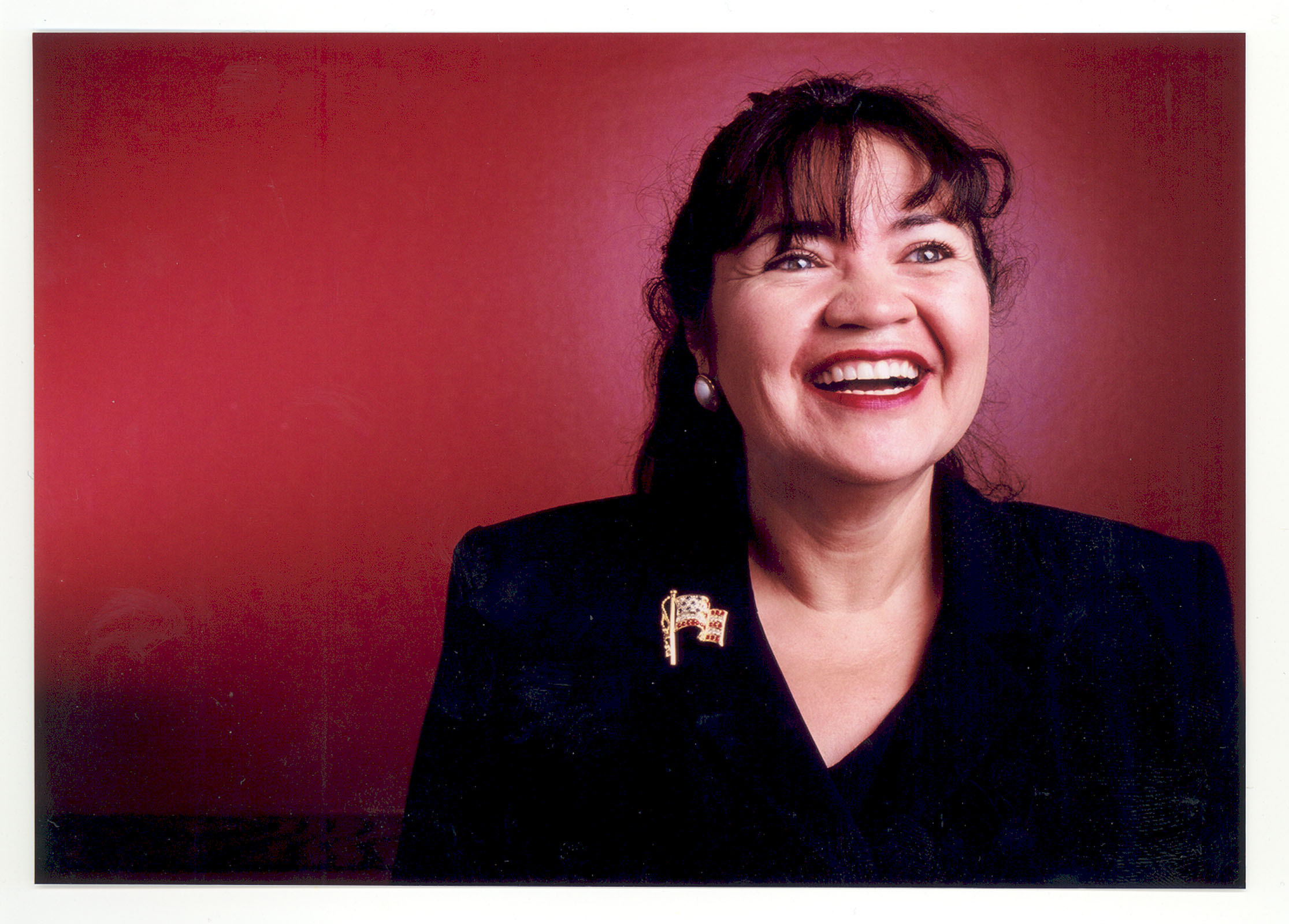 Wyatt McSpadde Source: University of Texas[/caption]
Wyatt McSpadde Source: University of Texas[/caption]
Norma Cantú
Born: November 2, 1954 Texas, USA
Third-generation Mexican-American Norma V. Cantú shot to national prominence during the eight years that she was assistant secretary of education for civil rights in the Clinton administration. There she led a staff of approximately 850, implementing government policy for civil rights in American education. During her first two years in that capacity, that office was able to increase the resolution of illegal discrimination cases by 20 percent.
Before joining the administration, Cantó had spent 14 years as regional counsel and education director of the Mexican American Legal Defense and Educational Fund (MAIDEF) where she litigated cases affecting education funding, disability rights, student disciplinary policies, access to special services for English language learners and racially hostile environ-ments. She started her education career as an English teacher in Browns-ville, Texas, in 1974.
Currently, Cantó serves a joint appointment to the education and law schools at the University of Texas-Austin. For her, it is a coming home of sorts. She graduated summa cum laude from the University of Texas-Pan American at age 19, taught high school English, enrolled at Harvard Law School, graduated at age 22 and went to work with the Nursing Home Task Force of the Texas Attorney General’s office.
Politics
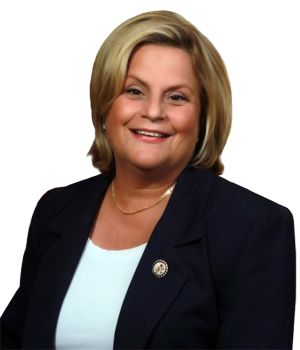
Ileana Ros-Lehtinen
Born: July 15, 1952 Havana, Cuba
Rep. Ileana Ros-Lehtinen represents Florida’s 18th Congressional District, a diverse area that includes Miami, Little Havana, Coral Gables, Pinecrest, Miami Beach, Westchester and the Florida Keys. She was born in Havana, Cuba, on July 1952. At age 8, she and her family were forced to flee from the Castro regime and put down permanent roots in Miami. She earned an Associate of Arts degree from Miami Dade Community College in 1972, bachelor’s and master’s degree in education from Florida Interna-tional University in 1975 and 1985, respectively, and a doctorate in educa-tion from the University of Miami in 2004.
Ros-Lehtinen began her career as a teacher in Florida. She founded and was principal of a private bilingual elementary school in Hialeah. In 1982, she was elected to the Florida State House of Representatives and to the Florida Senate in 1986, becoming the first Hispanic woman to serve in either body. In the state Legislature, she authored the Florida Prepaid College Plan, now the largest prepaid college tuition program in the nation. More than one million Florida families have used it to send their children to college. In 1989, she was elected to the U.S. House of Representatives, the first Latina to serve in Congress. She is currently the chairman of the house foreign affairs subcommittee on Middle East and North Africa.
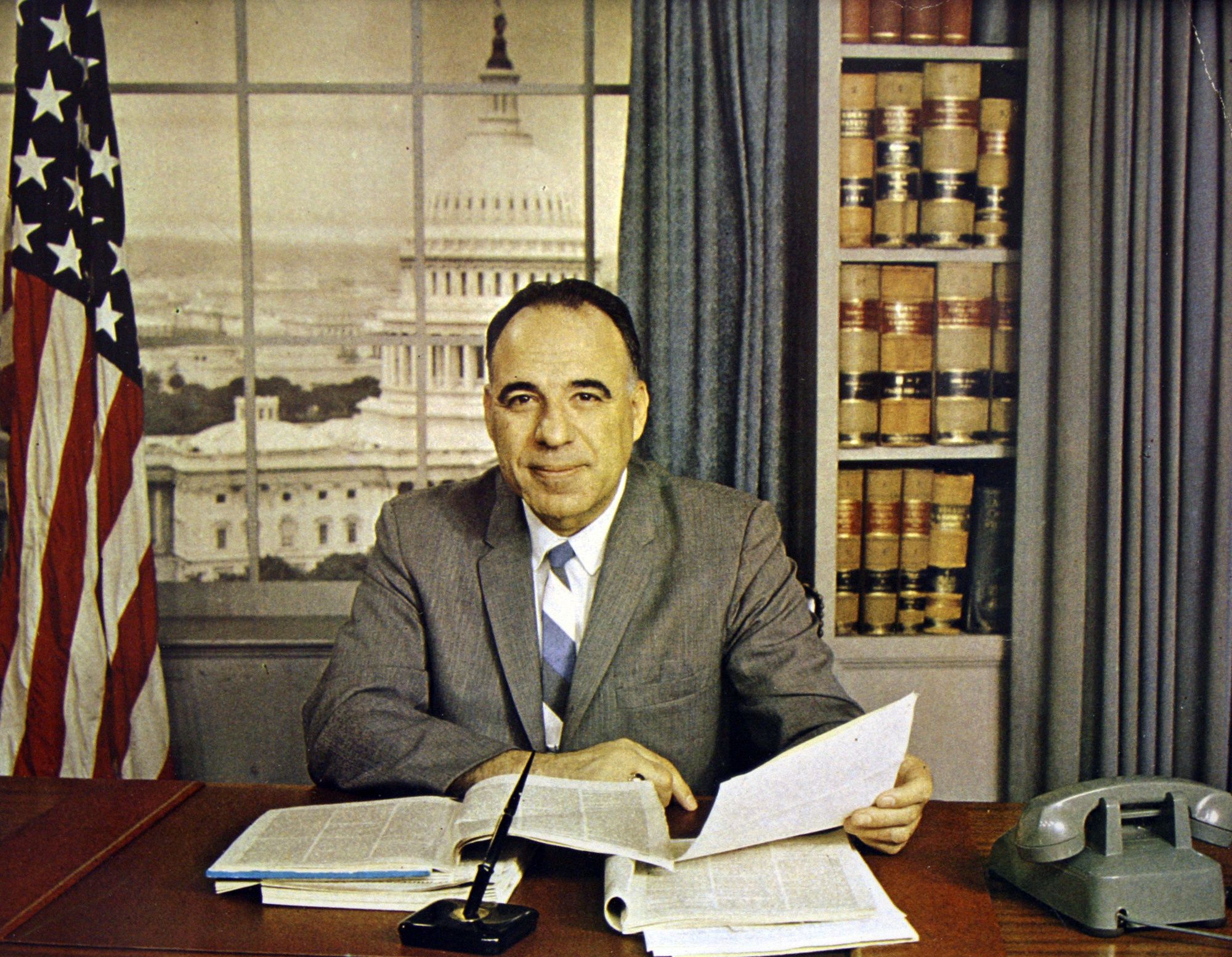
Henry González
Born: September 20, 1916 Texas, USA
Died: November 28, 2000 San Antonio, TX
Henry B. González was born in San Antonio, Texas, in 1916, five years after his parents fled the Mexican state of Durango during the 1911 revolution. Educated in San Antonio public schools, González attended the University of Texas and San Antonio College and went on to receive a J. D. from St. Mary’s University School of Law in 1943.
Politics was a natural fit for González. His father, Leonides, was involved in local Mexican politics, having previously served as mayor of Mapimi, Durango. Henry didn’t stray far from his Texas roots to start his illustrative career. His first elected post was that of a member of the San Antonio City Council. A stint as a state senator followed, and in 1961, he became the first Latino Texan to serve in the U.S. House of Representatives. He held the seat of Texas’ 20th Congressional District for the next 37 years.
During his tenure, González was on hand to vote for landmark New Frontier and Great Society legislation. As chairman of the House Banking, Finance and Urban Affairs Committee, González helped pass the Affordable Housing Act in 1990. In 1994, he was presented with the John F. Kennedy-Profile in Courage Award for his legislative efforts to aid the poor and disadvantaged. González did not run for re-election in 1998, but the Texas 20th remained in the González family. Henry’s son, Charlie, succeeded his dad in Congress. Henry González passed away in 2000.
Sports
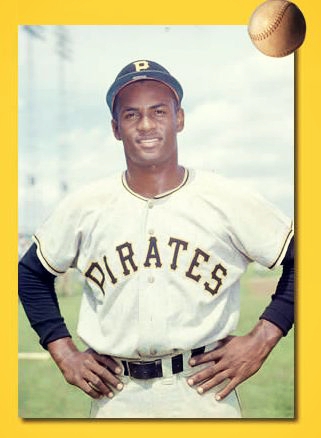
Roberto Clemente
Born: August 18, 1934 San Antón, Puerto Rico
Died: December 31, 1972 San Antón, Puerto Rico
Roberto Clemente was born in the summer of 1934 in a house of concrete and wood on an old country road in Barrio San Antón, Carolina, Puerto Rico, to Don Melchor Clemente and Luisa Walker. He was the baby of the family, having four older brothers and two older sisters. Although his father was a foreman at a sugar factory, Clemente’s family was poor, and Roberto had to work as a milkman in his neighborhood to earn extra money. He took an interest in baseball from an early age.
While Clemente was playing in the Puerto Rican Professional Baseball League, the Brooklyn Dodgers offered him a contract with one of its minor league team. In 1954, he was drafted by the Pittsburgh Pirates where he had his greatest fame and success as a ball player. In 1964, he married Vera Zabala at San Fernando Church in Carolina. The couple had three children: Roberto Jr., Luis Roberto and Enrique Roberto.
Roberto Clemente became a baseball legend in the United States, but in his homeland and throughout Latin America he became a national and cultural icon. His image was cultivated by his maintaining ties to his homeland and to Latin America. He died on Dec. 31, 1972 in a plane crash a few miles from his birthplace while attempting to deliver aid to earthquake victims in Nicaragua.
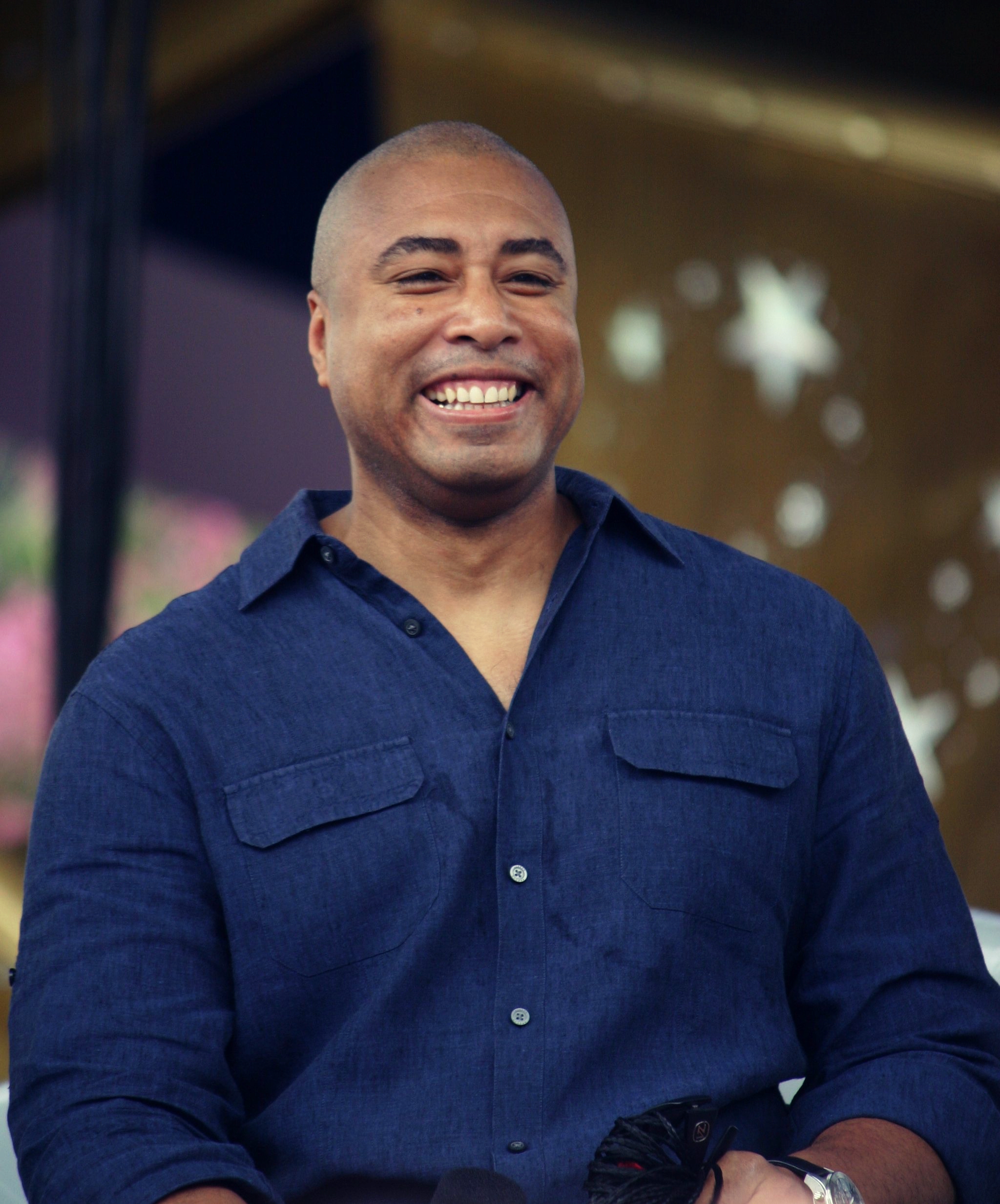
Bernie Williams
Born: September 13, 1968 San Juan, Puerto Rico
Growing up in Puerto Rico, Bernie Williams discovered his love for baseball and music at roughly the same time when at age 8 he fell in love with the sounds of a flamenco guitar his Merchant Marine father brought home from Spain and felt the same exhilaration when he first picked up a base-ball bat.
When Williams signed a contract with the New York Yankees at age 17, he brought his love of music with him. In his 16-year career patrolling centerfield for the Yankees, Williams was a four-time World Series Champion and a five-time All Star. His resume boasts four Gold Glove awards, the 1996 ALCS (American League Championship Series) MVP Award and the 1998 American League batting title. Throughout Williams’ years with the Yankees, his passion for music never waned.
In 2003, he released his first album, “The Journey Within.” The album featured fusions of jazz, rock and the tropical rhythms of Williams’ heritage and was met with both strong critical praise and instant chart success – reaching No. 3 on Billboard’s Contemporary Jazz Chart. Williams’ second album, “Moving Forward,” was nominated for a Latin Grammy Award for Best Instrumental Album in 2009.
Bernie also co-authored a book in 2011, published by Hal Leonard Books titled, “Rhythms of the Game: The Link Between Music and Athletic Performance.” In 2015, the Yankees honored Bernie Williams by retiring his No. 51 jersey and giving him a plaque at Yankee Stadium’s Monument Park.